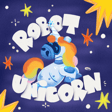
Feeling Misunderstood As A Sensitive Child: How Christina Perri Found Her Voice
CW: Miscarriage, Pregnancy Loss, Stillbirth, Alcoholism
In this heartfelt episode, you’ll hear singer-songwriter Christina Perri open up in a profound way. Christina talks to us about her journey from being a sensitive, deeply feeling child to an unexpected superstar. She shares how her deep emotions and sensory processing difficulties made her feel misunderstood and how she found solace in songwriting from a young age.
Christina takes us behind the scenes of her sudden rise to fame with the hit song "Jar of Hearts" and how she navigated the challenges that came with fame at an early age. She also discusses the incredible impact of her song "A Thousand Years," and Jess shares a surprising story about this song with Christina.
In this vulnerable and honest conversation, Christina shares her experience with pregnancy loss, including the stillbirth of her daughter Rosie. She discusses her advocacy work to expand prenatal testing to prevent pregnancy loss and the importance of talking openly about grief and keeping Rosie's memory alive.
Christina also shares how motherhood has shaped her current focus on healing, authenticity, and vulnerability in her music and public persona. She emphasizes the power of connection and shared experiences, especially among mothers, in overcoming difficult times.
Throughout the episode, we explore themes of sensitivity, creativity, grief, advocacy, and the importance of being vulnerable and true to yourself. This moving conversation offers a rare glimpse into the heart and mind of a talented artist and the experiences that have shaped her life and music.
Hear more from Christina Perri on Instagram!
Get 10% OFF parenting courses and kids' printable activities at Nurtured First using the code ROBOTUNICORN.
Learn more about the Solving Bedtime Battles course here.
Credits:
Editing by The Pod Cabin
Artwork by Wallflower Studio
Production by Nurtured First
